Mulholland Dr./2001/Universal, Studio Canal/145 min.
Let’s face it, reality sucks. So, on second thought, let’s not face it.
Instead, pluck an image from your fantasy du jour, then jump into your limousine, Lamborghini roadster or sedan chair and head to “Mulholland Dr.” for poolside cocktails with your dear chum writer/director David Lynch.
Or just put your feet up and watch the movie. This terrific neo-noir mystery is a story within a story within a story within a story about Hollywood, its shimmering promise and dark secrets, its cut-throat power and caustic pain, and its huge cast of heroes, hopefuls, heavies and hangers-on. The film is also a visual poem and Lynch’s highly personal, surrealistic imagery resonates long after you see it.
Lynch’s Tinseltown reminds me of F. Scott Fitzgerald’s valley of ashes in “The Great Gatsby,” the famous Hollywood sign, like the eyes of Doctor T. J. Eckleburg, set amid wild delight and staggering decadence.
Lynch’s detractors complain that his motifs – portals and shadowy rooms, lurking danger beneath an innocent exterior, secret languages, nightclub singers and stages, for example – are shallow gimmicks that Lynch leans on from film to film. (His other work includes: “Eraserhead” 1977, “Blue Velvet” 1986, “Wild at Heart” 1990, the TV series “Twin Peaks” 1990-91, “Lost Highway” 1997, “Inland Empire” 2006).
Nevertheless, in each film, Lynch creates a unique cinematic world that takes your breath away with its striking beauty, sly humor, intense characters and uncommon depth. In “Mulholland Dr.” Lynch invites us into a shiny dream as well as a devastating nightmare. Though it’s a contemporary setting, there are so many retro references that the story almost feels like a period piece.
In part one, we meet golden girl Betty Elms (Naomi Watts), a young actress who’s just arrived in Hollywood. Sweet, perky and hopeful, Betty has a retro-chic apartment to live in and an audition set up for a role in a major movie. Just in case she needs to borrow a cup of sugar, her charming landlady Coco (Ann Miller, in her last movie role) is ready and waiting to help.
Nothing throws this girl, not even finding a stranger using her shower. This particular mystery woman calls herself Rita (Laura Elena Harring) because she can’t remember her own name or anything else about her life. Arrestingly beautiful, with raven hair and ravishing features, Rita appears to be on the run from some nefarious mobsters but she doesn’t know why, natch.
Nor does she have any idea why she has a key and $50,000 in her handbag, which the girls hide in a hatbox. (Well done! If you’ve picked the right frock and got your lipstick on straight, why bother to carry cash?)
Betty decides that Rita needs to retrace her steps in order to regain her identity. But first Betty must prepare for her audition. Rita helps her rehearse and the next day Betty wows everyone in the room, including her debonair co-star Jimmy Katz (Chad Everett). Afterward, Betty is whisked away to meet edgy young director Adam Kesher (Justin Theroux), who’s casting a flick called “The Sylvia North Story.”
Later, over coffee at a diner (Lynch always loves a diner), Rita remembers the name Diane Selwyn; this leads them to an apartment where they make an unsettling discovery. That night, Rita has a few tricks up her sleeve for Betty – first a seduction, then a visit to a strange, nearly empty dive bar called Club Silencio, where Rebekah Del Rio, playing herself, performs a stunning a capella rendition of Roy Orbison‘s “Crying.” When they return home, Rita uses her key to open a box and Betty disappears.
There are several subplots involving a fantasy creature in a diner parking lot; a hitman (Mark Pellegrino) who steals an address book, then casually kills three people; and slick-suited heavies (including Dan Hedaya as Vincenzo Castigliane) pressuring Kesher to cast unknown blonde actress Camilla Rhodes (Melissa George) in his movie. Oh, and Kesher’s wife (Lori Heuring) is sleeping with the pool guy (Billy Ray Cyrus).
In part two, Lynch rejiggers this world. The glossy, fun-filled days and Betty’s wholesome aspirations are gone, replaced by pitch-black, sinister nights, acts of betrayal and quests for revenge.
“Mulholland Dr.” – whose abbreviated title may be a tribute to Billy Wilder’s “Sunset Blvd.” – deserves high praise, for its look, its performances, its humor, its risks, its weirdness. Angelo Badalamenti (he has a cameo as gangster Luigi Castigliane, a man who takes espresso extremely seriously) contributes a stellar soundtrack and Peter Deming’s cinematography, with bright light and saturated color, is a treat.
Most of all, though, Lynch’s direction is superb. So is the acting. Watts easily shifts from fluffy and fierce, graceful to gritty. Similarly, Harring makes a fluid transition from lost soul to lady in charge. Though the plot is sometimes thorny, the actors are breezy and believable.
To think that Renée Zellweger received a Best Actress Oscar nom for “Bridget Jones’s Diary” and Watts didn’t make the list is baffling. (Halle Berry won that year for “Monster’s Ball.” The other contenders were Sissy Spacek for “In the Bedroom,” Nicole Kidman for “Moulin Rouge” and Judi Dench for “Iris.”)
Lynch was nominated for a Best Director Oscar. Ron Howard won for “A Beautiful Mind,” which also won Best Picture. At Cannes, however, “Mulholland Dr.” received the Palme d’Or for best direction. (Lynch shared the honor with Joel Coen for “The Man Who Wasn’t There.”)
Of all that’s been written about “Mulholland Dr.” critic Stephanie Zacharek sums it up best: “‘Mulholland Dr.’ is the most womanly of David Lynch’s movies. … It’s wily and sophisticated, stylized like an art deco nude, and suffused with so much feline glamour and beauty and naked eroticism that its chief aim seems not to be to dazzle us with its typically Lynchian plot twists, but to seduce us into its sway and keep us there. This is a movie with hips.”
Speaking of seducing, I must dash back to my fantasyland. I’m meeting with my agent so I can sign that $3 million book deal. Then, I’m off to dinner and dancing with Clive Owen at the Stork Club. Ta ta!


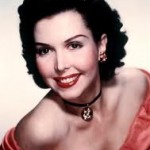
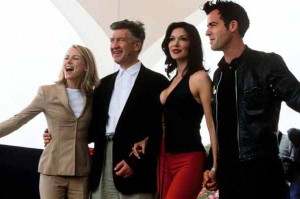
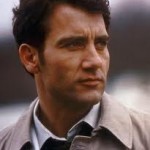





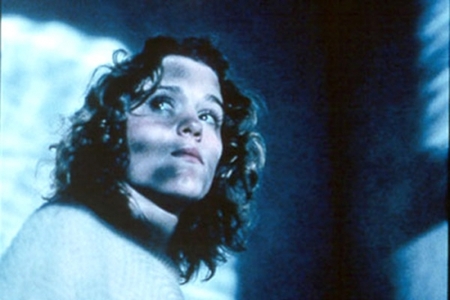
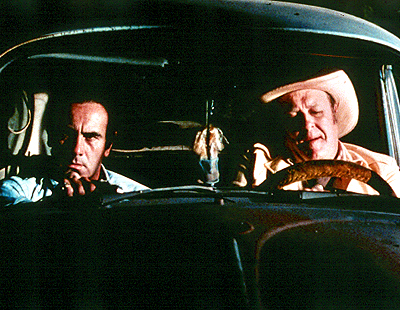
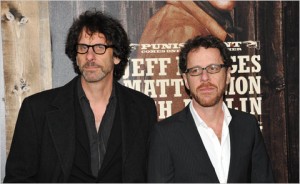
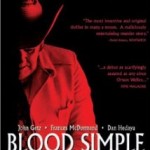





From FNB readers